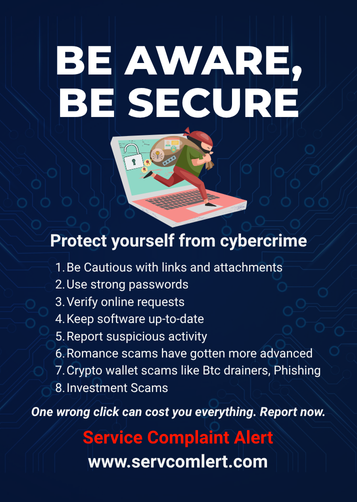When Laura discovered that her husband had quietly drained their joint savings and cut off her access to their accounts, she felt trapped—not just emotionally, but financially. Her sense of security was shattered, and with no independent funds or credit, the path to freedom seemed impossible. Financial control in marriage is a silent form of abuse that often goes unnoticed until it leaves deep scars and real-world consequences.
In recent years, awareness of financial abuse within relationships has increased, yet many still struggle to identify it or know how to break free. As economic independence becomes more critical for personal autonomy, understanding the mechanisms of financial control and the steps to regain freedom is essential. This article explores the dynamics of financial abuse in marriage, shares expert insights, and provides actionable advice for those seeking to escape such control with confidence and safety.
Understanding Financial Control in Marriage
Financial abuse is often an overlooked aspect of intimate partner violence. It involves one partner exerting power by restricting access to money, monitoring spending, sabotaging employment, or accruing debt in the other’s name. The goal is control—limiting the victim’s ability to make decisions, build independence, or leave the relationship.
According to a 2023 report from the National Coalition Against Domestic Violence, nearly 99% of financial abuse victims are women, and financial control can co-occur with other abuse forms such as emotional or physical violence. The controlling partner may employ tactics such as:
- Refusing to contribute to household expenses while limiting the other’s income opportunities.
- Monitoring or forbidding access to bank accounts and credit cards.
- Stealing money or incurring debts without consent.
- Using joint assets to create dependency.
- Isolating the partner from family, friends, or financial advice.
Recognizing these behaviors is the first critical step toward reclaiming autonomy. For many, the emotional toll coupled with financial dependency creates a powerful barrier to escape.
The Complex Emotional and Financial Landscape
Escaping a financially controlling marriage is rarely straightforward. Many victims experience feelings of shame, fear, or guilt. They might worry about how to support themselves or their children after separation. Practical challenges include lack of credit history in their name, no savings, or limited knowledge of the couple’s financial situation.
Experts highlight the importance of a strategic approach that balances safety with financial planning. As Dorothea, a financial expert and relationship counsellor, explains, “Breaking free requires both emotional readiness and a clear understanding of financial rights and resources. Empowerment comes through knowledge and careful steps, not rush.”
Legal Rights and Financial Protections
One of the most important aspects to understand is the legal framework surrounding marital assets, debts, and protections. Laws vary by jurisdiction, but in many regions:
- Marital property is divided equitably upon divorce, even if one partner controlled the finances.
- Victims can request temporary financial support during proceedings.
- Joint debts incurred without consent may be contested.
- Courts can issue protective orders to prevent financial sabotage.
Consulting with a family law attorney who understands financial abuse is crucial. They can help assess assets, identify financial abuse patterns, and assist in freezing accounts if necessary. Nonprofits and support organizations often offer legal aid services tailored for abuse survivors.
Practical Steps to Regain Financial Independence
While every situation is unique, survivors of financial control can take specific, actionable steps to rebuild their autonomy:
1. Secure Access to Funds: If possible, open a new bank account in your name alone using a trusted friend’s or family member’s address to receive statements securely.
2. Gather Financial Documents: Collect any available records of income, joint accounts, debts, and assets. This documentation is invaluable for legal and financial planning.
3. Build Credit: Apply for a credit card or small loan under your own name to start establishing or rebuilding credit history.
4. Seek Professional Advice: Financial counselors or trusted advisors can help create budgets, manage debts, and plan for independent living.
5. Use Secure Tools: Digital wallets and financial apps with strong security features—such as Voyallet, which offers encrypted storage and user-controlled access—can help protect assets during this vulnerable period.
The Human Stories Behind the Numbers
Take the story of Maria, a schoolteacher who found herself financially strangled after marriage. “He controlled every penny, and I felt invisible,” she recalls. “But when I discovered resources and met a counselor, I realized I wasn’t alone.” Through gradual financial education and support, Maria managed to separate her finances, rebuild her credit, and eventually leave the marriage with confidence.
Similarly, James, a man in a controlling relationship, shares, “I never thought financial abuse applied to me. It was subtle but devastating.” His experience highlights that financial control transcends gender and underscores the need for awareness across all demographics.
Avoiding Common Pitfalls
Survivors should be cautious of:
- Sharing passwords or PINs with anyone who controls finances.
- Using personal assets as collateral without understanding implications.
- Rushing into financial decisions under pressure.
Awareness and patience are critical. Engaging with support groups, counselors, and financial professionals ensures safer, more informed decisions.
Looking Ahead: Empowerment Through Knowledge
Escaping financial control is a journey, but with the right tools and support, autonomy and security are attainable. It’s vital for survivors to know that financial abuse is a recognized form of harm, with resources designed to assist recovery.
For those navigating the aftermath or trying to safeguard their assets, modern financial tools integrated with secure investment and card services offer new layers of protection and convenience. This evolving landscape, supported by expert advice and legal frameworks, empowers victims to reclaim control over their lives and finances.


















